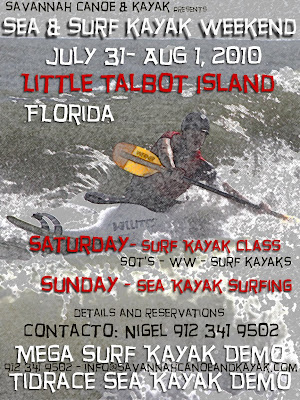 Ga Shrimp season began early June and will run until the end of the year.
Ga Shrimp season began early June and will run until the end of the year.At the time of opening, the DNR had sold 116 trawler licenses, including 26 to shrimpers from Northeast Florida and the Carolinas. As of the start of the season, no shrimpers displaced by the oil spill in the Gulf of Mexico had bought a license to fish in Georgia waters.
The DNR decides when shrimp season starts and ends after officials have reviewed data measuring shrimp abundance and size.
“Catches of shrimp in coast-wide scientific surveys have continued to be below normal in our creek and sound stations,
but well above normal at stations located in traditional fishing grounds just offshore,” said Jim Page, the Coastal
Resources Division (CRD) biologist responsible for monthly shrimp sampling.
“Water temperatures are presently 10%
above normal and count size looks great so we believe adequate numbers of white shrimp have had an opportunity to
spawn,”.White Shrimp Facts
•Habitat: In waters of 89 feet or less although occasionally found much deeper. Post larval shrimp occupy nursery areas in estuaries that offer abundant food, suitable substrate, and shelter from predators. In the South Atlantic, these areas are generally dominated by the marsh grass Spartina alterniflora. White shrimp enter the estuaries in April and early May and begin emigrating out to commercial fishing areas in August through December. White shrimp prefer muddy or peaty bottoms rich in organic matter and decaying vegetation in inshore waters and prefer soft muddy bottoms offshore.
•Life span: Short - less than one year. Shrimp are an annual crop.
•Food: Juveniles and adults are omnivorous bottom feeders that mostly feed at night. They eat polychaete worms, amphipods, nematodes, caridean shrimps, mysids, copepods, isopods, ostracods, mollusks, foraminiferans, chironomid larvae, and various types of organic debris.
•Growth rate: Rates are highly variable, depending on season, water temperature, shrimp density, salinity, size, and sex. Adolescent white shrimp grow rapidly, ranging from 0.04 to 0.09 inches per day.
•Maximum size: Estimated at 7 to 8 inches.
•Reaches reproductive maturity: At about 5.3 to 5.5 inches total length.












